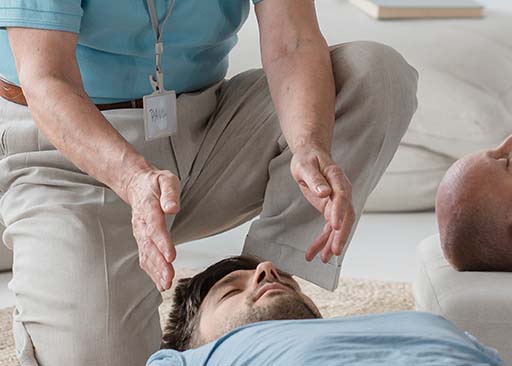What You Should Know About Holistic Health Practitioners

Holistic health in our modern era draws on concepts of acupuncture, herbal medications, Ayurvedic medicine, Traditional Chinese Medicines, Qigong, and a variety of other approaches to health that are far removed from the conventional medical practice. Today it is being inducted into the most respected segments of modern medicine, primarily since so much clinical evidence now supports the practice of holistic healing.
But the latest understanding of holistic healing is not merely accepted by the healthcare industry; it is widely sought out by alternative health enthusiasts and those who would like to find a different approach to their conditions after getting poor results from the conventional methods. Many people are no longer satisfied with the pill solution to all ailments. They seek the help of professionals who are experienced in a wider array of healing methods that have been found as effective as those offered by conventional medicines.
What is Holistic Health?
It may seem like good health is hard to define. It is often broken down into various components that give a good idea of what a healthy and functional body and mind look like. Even though modern medicine has seen significant advancements and has accomplished things that can only be called miraculous, it often takes a very one-sided approach to better health. Usually, this involves looking at a variety of body parts, components, and systems.
Holistic health has a different way of looking at good health. From a holistic perspective, optimal wellness is a perfectly balanced system of the mind, body, and spirit, each of which can be improved or impacted by the other.
Holistic health is often described as looking at the whole person, including mind, body, and spirit. To find a remedy to a specific ailment, a combination of several different medications or practices may be needed. Healing may include conventional western medicine to a certain degree but will go far beyond addressing the body’s physical symptoms.
Some of the most common health practices preferred by the holistic health practitioner may include:
- Chiropractic Medicine
- Therapy
- Massage
- Concierge Medicine
- Herbal-ism
- Yoga/Meditation
- Energy Work – Reiki
- Nutrition
- Personal Trainer
- Acupuncture
When you think of it, if you are feeling sick, it is very rarely just the body that feels impacted. The mind is often confused and not operating optimally, and your spirit may also be downcast, even though many people are not quite as native to their spiritual states as they ought to be. When holistic health practitioners use a variety of these therapies, they form a sort of gestalt effect that improves their health on various levels and boosts efficacy.

The Importance Of Health
It is undoubtedly true that people can live exceptionally long lives, but these lives are still plagued with various illnesses that our ancestors may never have seen. A global pandemic of extremely high stress, out-of-control cortisol levels, and fatigue has made these longer lives most unpleasant. Furthermore, modern lifestyles are beset by unhealthy diets and lifestyles, polluted air and water, and the overuse of chemicals in homes and personal hygiene.
So, although modern medicine attempts to address as many illnesses as possible, the consequences of modern living have thrown health on a tailspin.
Many people live with chronic stress, inflammatory conditions or diabetes, and a whole host of symptoms. The reason, of course, is because modern medicine only presents itself in symptoms and makes no effort to rectify the underlying causes that can significantly affect health.
Holistic health offers an alternative by addressing the internal and external factors contributing to any specific condition. It provides a more systematic approach to promoting well being, and this is essential as modern lifestyles change from day to day.
Five Aspects Of Holistic Health
A holistic practitioner will look beyond merely improving the physical body’s health by addressing the whole person’s needs on a physical, mental, spiritual, emotional, and social level. These five essential aspects of good health enable a person to be the best, happiest and healthiest version of themself.
Physical — this is what comes to most people’s minds when they think of good health. The physical symptoms of poor health are pretty apparent to the person experiencing the sickness and visible to those around as well. Physical symptoms of poor health can be tracked and understood relatively quickly, whereas the symptoms of poor health on the other four levels can be a little harder to identify.
Emotional—emotional health is often overlooked until it reaches a breaking point. Significantly few people can pick up on the slight indications of emotional illness. A holistic health practitioner will advise their patients to take some specific steps to improve their emotional health.
Common emotional health exercises include increasing awareness of emotional states and seeking help when needed. Mindfulness and meditation are great ways to build awareness of emotional levels and gain control over them. Keeping a record of emotional experiences is another good way to track emotions and zero in on the root causes of emotional disturbance.
Social — studies have shown that many of the happiest people on earth enjoy a wonderfully healthy social life complete with deep connections to their community, friends, and family. Religion can be such a vital part of gaining social health, and faith is irrelevant.
Holistic health practitioners may not convince you to take up a religious pursuit, but they will advise you to improve your social health in other ways if they see your social life as leading to poor health. For example, you may be encouraged to make more time for interpersonal connections, get involved in your community, and set boundaries to the people who do not bring good social health to your life.
Spiritual — poor spiritual health doesn’t mean that you are not religious and suffering for it. Even very religious people can become detached from their spiritual needs if they have lost focus on creating a vital connection between their spiritual side and the nature of the exterior world.
A holistic practitioner may advise a person suffering from poor spiritual health to spend more time in nature, spend time meditating each day, and, if they are religious, to invest more time in building their faith.
Mental — the last aspect of holistic health, but by no means the least important is the mental plane. Mental health can overlap with the other levels of physical and emotional health. The most significant difference between mental and emotional health is that emotional health deals with our capacity to manage moods and emotions. In contrast, our mental health has more to do with our cognitive ability and brain function.
Some of the ways a holistic practitioner may advise their patient to improve their mental health will be to take up challenges that build mental acuity, like learning a new language, musical instrument, or some other skill. Eat a better diet with essential vitamins and minerals that build better brain health and avoid eating processed foods, smoking, and drinking in excess.
Education
The holistic health career of a practitioner will take different courses depending on what they hope to accomplish. While some classes are relatively short, resulting in a bachelor’s degree, others include a master’s degree and even a doctor’s degree.
Most holistic health programs require intensive training and hours of hands-on experience. For example, those who wish to join naturopathic health will complete four years of training and a doctorate program. After this, there will be over 100-hours of clinical training and patient management.”
Then some will take up other alternative medicine, such as acupuncture, ayurvedic medicine or Traditional Chinese medicine, and will be required to study these disciplines for their respective program length. A degree in acupuncture requires three years to master and then several hundred hours of training and patient management. Massage therapy is also a branch of holistic medicine, but it is not so studying intensive, and most can complete their training course in a matter of months to a full year.
Most holistic health practitioners will have experience in at least one or more of the following fields:
- Anatomy and physiology
- Nutrition and body chemistry
- Therapeutic touch and bodywork
- Spirituality in healing
- Natural remedies such as peppermint oils, herbs, and homeopathic preparations
- Stress management and relaxation techniques

Many established holistic health practitioners believe that following a set route is the best course of action. These established medical routes could include Ayurvedic medicine, Traditional Chinese Medicine, or other traditional medical studies. Those who do choose this path will often attend a holistic health school as well. Here they will study the various histories of the specific healing traditions.
Then there will be some facets of holistic health education required by the state or country in which the practitioner is practicing. Not all locations have regulations for holistic health workers, but many do. It will be essential to inquire about the training a holistic health worker must complete for this specialty in your state.
Holistic Health and BioScan
Another essential supplement to the holistic health practitioner’s protocol is the BioScan systems. Galvanic body readings are on the cutting edge of finding the root causes of unwellness on various levels. Because BioScan technology is based on the combined sciences of homeopathy, acupuncture, and biofeedback, the system can be advantageous to a holistic health program.
The BioScanSRT works by collecting data on human conditions by measuring the slightest responses of the human body and recording them. The data collected can then be analyzed readings, providing insights into what the body is experiencing.
BioScan technology is not an invasive or complicated process, and the entire examination can be completed within ten minutes. But the information is handy in examining the body’s conditions holistically, which can be very useful to holistic health practitioners providing alternative health plans for their patients.
